Archive
30 June 2020
Historic floods reveal how salt marshes can save lives in the future
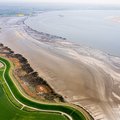
Coastal wetlands like salt marshes are increasingly recognized as valuable natural defenses that protect coasts against strong wave attacks.
31 March 2020
Graduations from April 6
Click here to read the current rules due to the coronavirus, for students who graduate from April 6 and for whom the graduation date has already been scheduled.
12 March 2020
New Department Chair of Hydraulic Engineering

Professor Stefan Aarninkhof is the new Department Chair of Hydraulic Engineering as of 1 March 2020. He takes over the activities of professor Wim Uijttewaal, who has led the department for four years.
12 March 2020
Into the mud to help nature
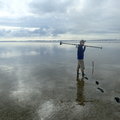
PhD candidate Lodewijk de Vet stood in the mud for weeks, in order to learn about organisms in the seabed and to take measurements. He wants to understand the Eastern and Western Scheldt better, so that he can help the ecology while simultaneously protecting our country from rising sea levels. His understanding of these areas served as a foundation for the Roggenplaat nourishments, that have since been executed.
26 February 2020
TU Delft Delta Links
The new DeltaLinks are available [Dutch only].
18 February 2020
Can sandbanks save mangrove forests?
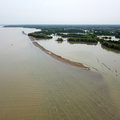
Waking up early and going into the field on a small fishermen's boat, while the sun is rising behind volcano tops. That's how days started for PhD student Silke Tas during her two month fieldwork in Indonesia. The rest of her days were less idyllic: they consisted mostly of treading through the mud to get the right measurements for her research. She studies the workings of coastal sandbanks that give a chance to mangrove forests to restore, so that the forests can, in turn, prevent coast erosion.
16 February 2020
Waiting for the perfect storm
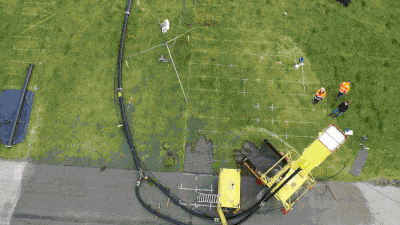
For months hydraulic engineer Patrick Oosterlo has been waiting for a heavy storm. One that can truly test his equipment that was installed in and on a dike on the coast of the eastern Wadden Sea. He needs high waves and strong winds to decide: is this dike high enough?
14 February 2020
Postdoc (PhD) position
Development of a probabilistic design method for rock groynes
13 February 2020
Master Thesis Opportunity
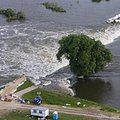
The inclusion of flood defences in flood hazard maps.
11 February 2020
Detecting plastic waste in rivers using drones
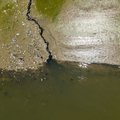
Rivers take vital water to villages and cities, but unfortunately they also carry harmful plastic to oceans. In order to prevent this, we need to find out exactly where the plastic comes from and how it is distributed over time and space. Counting plastic waste items from bridges is one of the commonly used methods to do this. But then how can the huge amounts of plastic in inaccessible places be pinpointed? Master student in Hydraulic Engineering Marlein Geraeds spent her internship at The Ocean Cleanup investigating how to monitor plastic waste in Malaysia’s River Klang by means of drones.